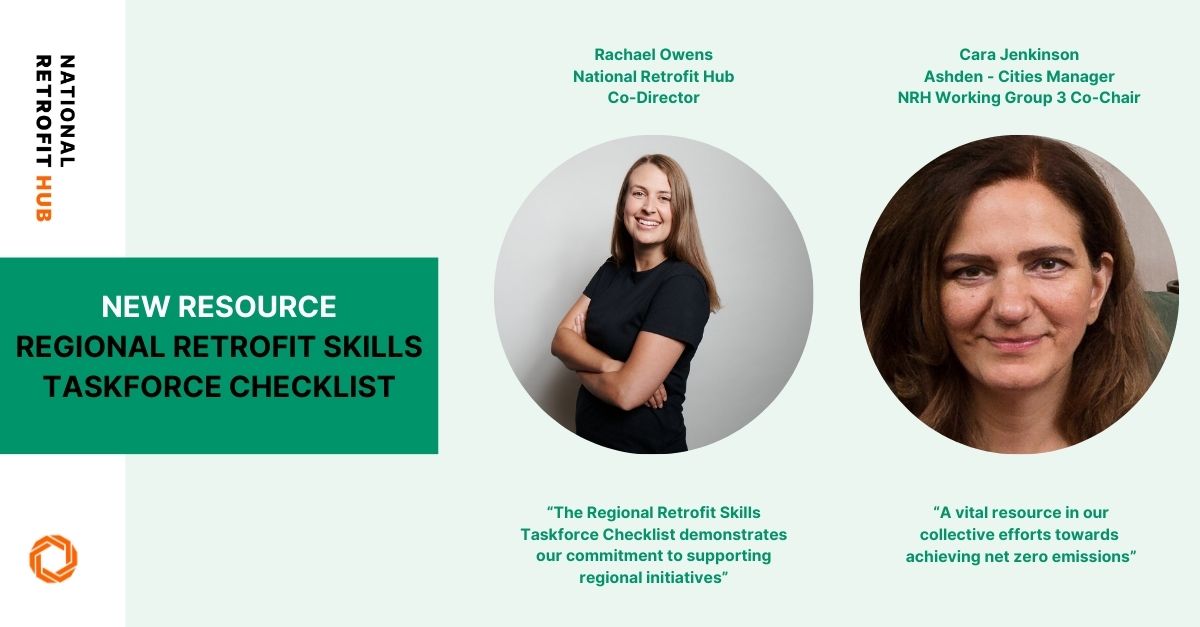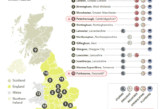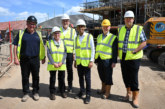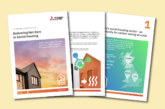
As the drive towards achieving net zero emissions intensifies, the National Retrofit Hub (NRH) announces the release of its latest tool to support regional efforts: the Regional Retrofit Skills Taskforce Checklist.
With the ambitious goal of retrofitting the nation’s homes to meet health, energy and net zero targets, the UK faces a pressing need for skilled workers in the construction sector. To meet this demand, at least 200,000[1], new entrants to the workforce are required alongside a substantial upskilling effort across the country.
Recognising this imperative, the Government is currently investing approximately £1bn annually in retrofit programmes, with expectations that this funding will increase following a general election. Regions across the UK are seizing the economic opportunities presented by retrofitting and are beginning to develop skills programmes accordingly.
In response to this growing need, the NRH has developed the Regional Retrofit Skills Taskforce Checklist. This resource is tailored to assist Policy Officers, Delivery Officers, Home Energy Leads, and similar roles within Net Zero Hubs, Combined Authorities, and County Councils.
The checklist serves as a comprehensive guide to help regional authorities develop robust skills plans, facilitating stronger connections between retrofit delivery and economic development programmes. It acknowledges the crucial role of convening housing providers, training providers, and retrofit employers — both large and small — in adopting a ‘system-wide’ approach. By ensuring that businesses and training providers understand the local pipeline of retrofit work, the checklist aims to facilitate the seamless transition of learners into job roles.
The checklist considers how procurement can be leveraged to increase training and job opportunities, engagement tactics for local SME construction and building services firms, and initiatives to encourage individuals of all ages and backgrounds to pursue careers in the retrofit sector.
Cara Jenkinson, Cities Manager at Ashden and Co-Chair of Working Group 3, led the development of this document with contributions from Working Group 3 task and finish group members.
“We are excited to introduce the Regional Retrofit Skills Taskforce Checklist, a vital resource in our collective efforts towards achieving net zero emissions,” said Cara Jenkinson. “By fostering collaboration and strategic planning at the regional level, we aim to accelerate progress towards our shared sustainability goals.”
Co-director of the National Retrofit Hub Rachael Owens added: “The release of the Regional Retrofit Skills Taskforce Checklist demonstrates our commitment to supporting regional initiatives. By equipping stakeholders with the necessary tools and strategies, we empower communities to drive meaningful change towards a sustainable future.”
The NRH has worked closely with regional experts to develop this resource.
Polly Persechino, Head of Economy, Skills and Employment from South London Partnership explains its significance: “The early work undertaken in developing the taskforce checklist has been invaluable in shaping South London’s retrofit response to date and will form a fundamental part of how the activities of the South London Retrofit Taskforce are informed and shaped moving forward. It has been extremely useful in developing South London’s ‘whole system’ response to seizing the opportunities that retrofit represents and in helping us convene a wide variety of stakeholders around a common set of aims, evidence base, priorities, and areas of action. We are grateful for the work of the National Retrofit Hub and wholeheartedly welcome the publication of this framework and look forward to working with colleagues at the National Retrofit Hub on its roll-out and future development.”
Genevieve Dady, Supply Chain Development Manager from Greater South East Net Zero Hub re-enforces the importance of continued collaboration and delivery: “As a regional Hub, we are acutely aware of the shortage of skilled retrofit personnel and the challenging task that lies ahead in terms of reaching net zero by 2050. This checklist is a big step towards tackling that challenge and will be an important planning tool for all of those working in the sector. It is also, in itself, another demonstration of how essential collaboration is in finding solutions and we’re proud to have had the opportunity to be involved in its compilation.”
The NRH Regional Retrofit Skills Taskforce Checklist can be downloaded here.
[1] Figures are based on industry groups’ estimates that between 150,000 and 250,000 people are working in trades relevant to retrofit/the RMI sector (figures from Parity Projects & Retrofit Academy). The New Economics Foundation has estimated that 429,000 retrofitters will be needed, this means that there is a gap of approximately 200,000 people. Other bodies have found that the need may be even greater than this, Historic England, for example, estimates that an additional 105,000 full-time workers will be needed to retrofit historic buildings each year through to 2050.









